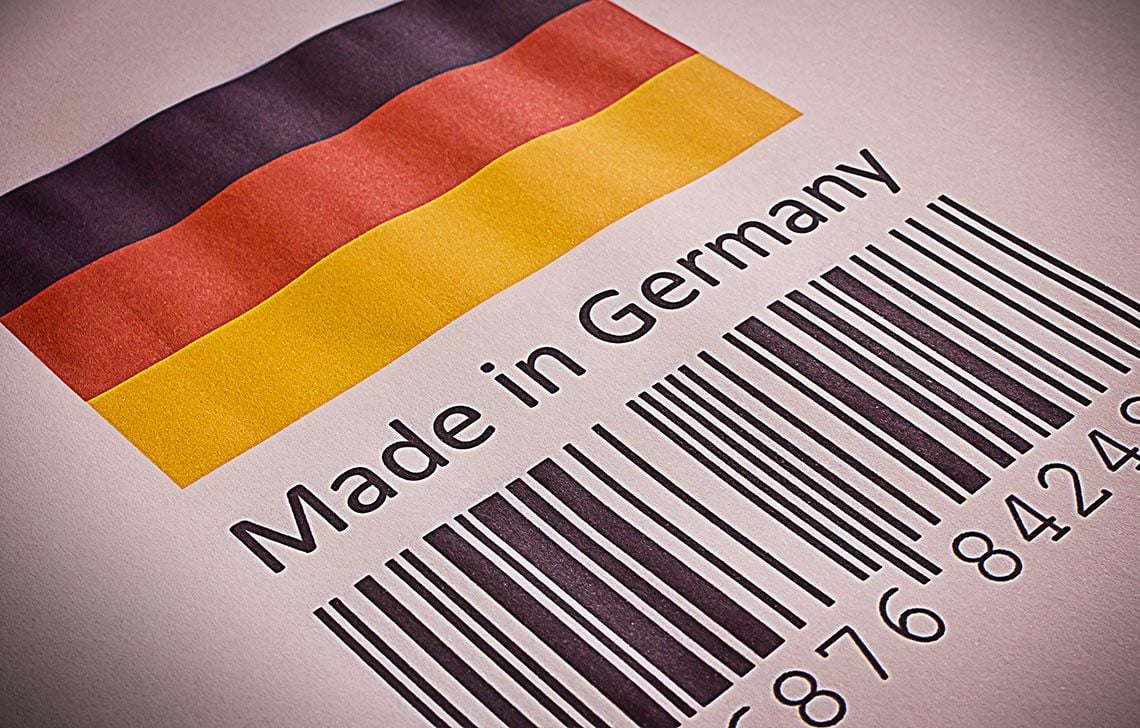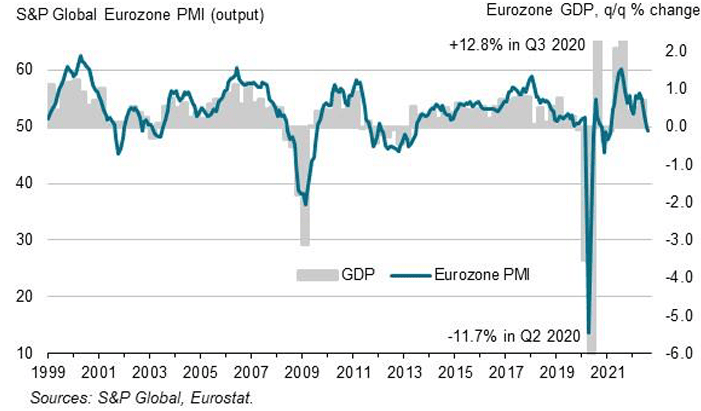PMIs Show Eurozone "Heading Towards Recession Quickly"
- Written by: Gary Howes

Image © Adobe Stock
The Eurozone is entering recession according to the findings of a regular and much watched survey.
The S&P Global PMI survey for August showed Eurozone economic activity contracting as surging inflation negatively impacted consumers and businesses, although there was a glimmer of light ahead as inflationary pressures started to ease.
The composite PMI read at 49.2 for August, which was a better outcome than the 49.0 the market was expecting, but still consistent with contraction.
S&P Global reports cost of living pressures in the Eurozone sapped demand in the services sector (50.2), leaving activity only just inside growth territory, while manufacturing remained in a downturn (49.7) midway through the third quarter of the year.
"The August PMI indicates this economy is heading towards recession quickly if it's not already in one. Meanwhile, weaker demand is leading to some fading of inflationary pressure, but the question is how soaring energy costs will impact this in the coming months," says Bert Colijn, Senior Economist for the Eurozone at ING Bank N.V.
Germany's manufacturing PMI surprised by coming in at 49.8, which is better than the 48.2 the market was looking for, although a reading below 50 confirms the sector contracted.
The country's Services PMI read at 48.2 however, which is below the 49.0 expected and a slowdown on July's 49.7.
Germany's composite PMI - which balances the data to give a better sense of overall economic activity - read at 47.6, which is slightly better than the 47.8 the market was looking for and just lower than July's 48.1.
The good news for the Eurozone is that inflationary pressures appear to be near a peak as the effects of falling global commodity and fuel prices feed through.
However, with gas and electricity contracts continuing to print fresh records the outlook remains far from certain.
"Weaker demand and easing input prices are helping selling price inflation moderate a bit, but the question is whether this can last now that natural gas prices are reaching new records again," says Colijn.
ING says Eurozone economic weakness is set to persist.
"We expect that a eurozone recession has started as the purchasing power squeeze in the eurozone economy continues. For the ECB, this complicates matters significantly, but we do think that September will still see a 50 basis point rate hike. After that, we think the rapid cooling of the economy will cause the ECB to pause its hike cycle, if we can call it that," says Colijn.




